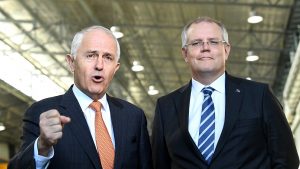What does the 2017 budget mean to you?
After weeks of media speculation, on Tuesday, May 9 the Federal Budget was released. To help you navigate the changes, we have pulled together key insights. To review the full budget release visit: 2017 Federal Budget
Childcare & Education
- A $37.3 billion increase in spending for childcare over four years, has been outlaid in this years budget. This will provide more affordable childcare, including after school care, for around one million families.
- Working parents earning $185, 710 or less will not face an annual cap under the Child Care Subsidy. A $10,000 cap will apply for families earning more than this.
- Education: University fees will rise by 1.8 per cent next year, and 7.5 per cent by 2022, increasing the share of fees paid by students from the current level of 40 percent to 41.8% – which could be up to $3,600 for a four-year university degree. HELP: The income threshold for repayments to higher education loans (HELP) has been lowered to $42,000, meaning students will have to start repaying loans sooner.
- $428 million in funding has been announced for ‘Universal Access’ to support all Australian children to gain access to 15 hours per week of preschool programs, regardless of the setting (this may include day-care facilities) under the National Partnership Agreement.
- An additional $18.6 billion has been allocated to schools over the next ten years under a new needs-based model. 20% of government schools, and 80% of non-government schools will share an increase in funding. On average per-student funding will be increased by 4.1%.
Housing affordability
- A proposed $375.3 million in funding for the new National Housing and Homelessness Agreement (NHHA) will help to provide more affordable housing for the most vulnerable. This funding, which will be matched by State and Territory Governments, will support homelessness support services.
- First time buyers will be able to make voluntary contributions to their superannuation up to $30, 000 to pay for a deposit on a first house or apartment. Similar to a salary-sacrificing program, this will assist with First home owners gaining access to the housing market faster.
- A tax benefit for retirees who are downsizing their homes will allow them to transfer up to $300,000 (per person) into a superannuation fund. This is aimed to encourage retirees who are currently living in larger homes to free up housing stock for young families who are entering the property market.
- SUPPLY: Aimed to address the low housing supply in Australia, the government will divest 127 hectares of surplus Defence land less than 10 kilometres from the Melbourne CBD. This land is large enough to develop up to 6,000 new homes.
Job seekers
- The new Skilling Australians Fund will support up to 300,000 apprenticeships, traineeships and higher level skilled Australians.
Healthcare
- The Budget is investing $2.8 billion for public hospitals.
- An increase in the Medicare Levy to 2.5% (up from 2%) in 2019 will guarantee the funding for the National Disability Insurance Scheme.
- The budget has funded $65.9 million for the Medical Research Future Fund to support health research. In addition, $5.8 million will support childhood cancer research.
- $115 million has been directed to mental health, including research, rural support, psychological services and suicide prevention.
- Freeze on Medicare rebates for bulk-billed consultations has been removed. $1.2 billion will go to funding new medicines on the Pharmaceutical Benefits Scheme, making them more affordable for consumers.
Transport & infrastructure
- $1.6 billion of Federal funds towards a $2.3 billion infrastructure package for WA including the top three by proposed dollar investment;
- Kwinana Freeway – Armadale & North Lake Roads
- Leach Highway – upgrade to High Street
- Access to Fiona Stanley Hospital
- $8.4 billion funding has been announced for an inland rail freight project linking Melbourne and Brisbane offering transit time of less than 24 hours, which will save an estimated 10 hours on the existing route.
- The Budget includes funding for a second airport in Sydney at Badgerys Creek, which will cost approx $5.3 billion and will likely open in 2026. Further investment of $3.6 billion for infrastructure in Western Sydney to support population growth in the region by a further $1 million by 2030.




There are no comments yet, but you can be the first